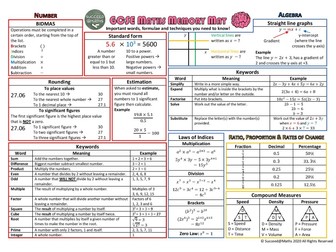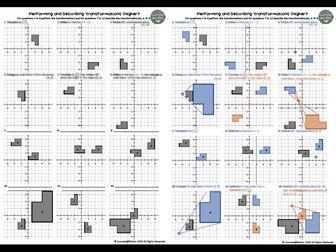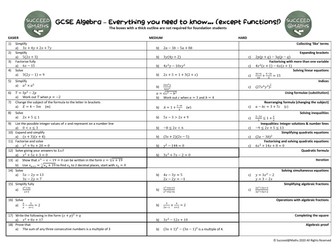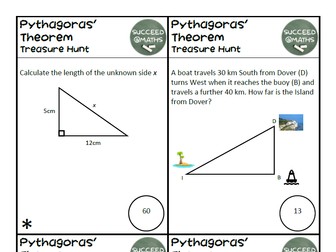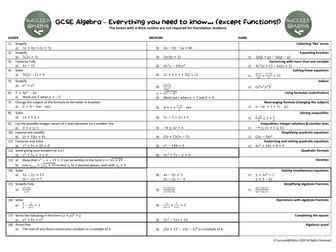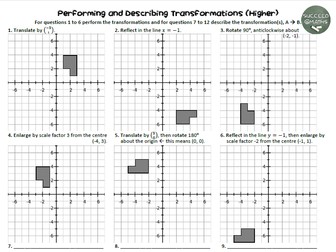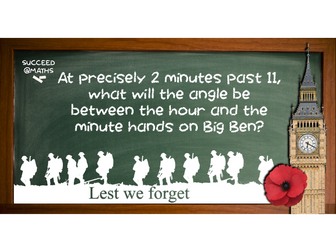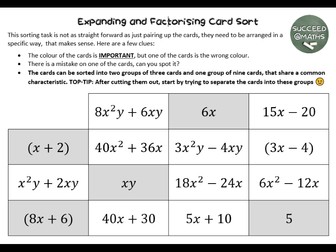GCSE Maths Foundation Revision Mat
This revision mat contains more information than any other I’ve seen on TES.
Structured into the different branches that make up the Maths National Curriculum identified by the different coloured sections to assist with memory recall.
The most common answer I get when I ask my students “How do you revise maths?”, is “I do past papers”. Without a doubt exam technique and problem solving skills are vital, but recalling key formula, laws and meaning of words, AO1, can be just as much of a barrier as AO2 and AO3 skills.
I like using the mat in conjunction with PixiMaths revision mats. It provides students with a quick reference point allowing them to work independently.
